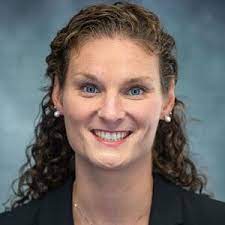Last Updated on June 26, 2022 by Laura Turner
Maybe you have been watching Untold Stories of the E.R. on loop, and you are expecting non-stop action during your clinical years. Maybe your physician uncle told you that he did nothing but study in medical school and residency, foregoing sleep for eight years in order to become a doctor. Maybe your friend who is already in medical school tells you that all her classmates are at the top of their game all the time.
If you are a prospective medical student, chances are that everyone—from the media to your friends to your mother—has some preconceived notion about medical education. While there may be truth in some of these ideas, misconceptions about the years spent in medical school run deep through popular culture. If you are considering submitting your application to medical school, investigating these misconceptions can help you gain a better understanding of what medical school will really be like. Below, we debunk three common myths about medical school to let you, the prospective medical student, know what it is like to pursue a medical education.
1. You will have no life outside of medical school
Medical school is a great deal of work, and many prospective medical students believe that they will be giving up an important portion of their lives to pursue a career in medicine. What most medical students find, however, is that life does not stop when you enter medical school—though carving out time to maintain relationships and interests outside of medical school becomes more difficult. While you may not be able to go on as many vacations as your peers in other fields, or have the freedom to go out to dinner multiple nights per week, or have as much financial freedom as your employed friends, entering medical school does not mean that you will not have any time away from the books. Instead, you will learn to prioritize the components of your life outside of school that are most important. You might decide to take Friday nights off to spend time with your significant other. You might use a long weekend to go skiing. You might read a few pages of a novel every night, or attend a performance of a play that you would really like to see. You do not give up your life in medical school; you learn to live with new time constraints.
2. Failing an assessment or performing a procedure or skill incorrectly is the end of your medical career
No one fails classes or exams in medical school, right? And if someone does fail, it means he or she is not cut out for medicine, right? Wrong. While it certainly is not desirable, failure—of classes, exams, and other assessments—happens, and instead of marking a student as a failure who has chosen the wrong career path, it can instead be viewed as an opportunity for that student to assess current work habits and implement changes. If you choose a career in medicine, you will likely fail. Perhaps you will not fail a major exam, but it is unlikely that you will do every new procedure right on your first try. You will miss the vein when drawing blood. You will forget an important piece of information when presenting a patient history to your attending. None of these things—failed tests, botched procedures, human errors—are singular in experience, and none indicate that you will not become a doctor. Failure is inherent to the learning process, and it ultimately allows you to become a stronger, more flexible student and physician.
3. You have to make a straight shot towards clinical medicine
Not everyone who enters medical school will end up in clinical medicine, and not everyone will complete medical school in the traditional four years. It is becoming increasingly common to take time away from school at some point during your medical education to pursue research or another project or interest that may strengthen your resume for residency applications. Additionally, some students take time to complete another degree, like an MBA or MPH, to better prepare themselves for their intended fields. And some students may opt not to pursue a residency after medical school at all, instead using their medical knowledge in biotechnology, pharmaceutics, or other similar industries. For many students, medical school is a predictable gateway towards a residency and subsequent career in clinical medicine, but it is important to remember that you need not be confined to this one option if you pursue a medical degree.
Cassie Kosarek, MD is a professional tutor with Varsity Tutors, a live learning platform that connects students with personalized instruction to accelerate academic achievement. She earned her Bachelor of Arts from Bryn Mawr College and was a member of the Class of 2021 at the Geisel School of Medicine at Dartmouth College.


